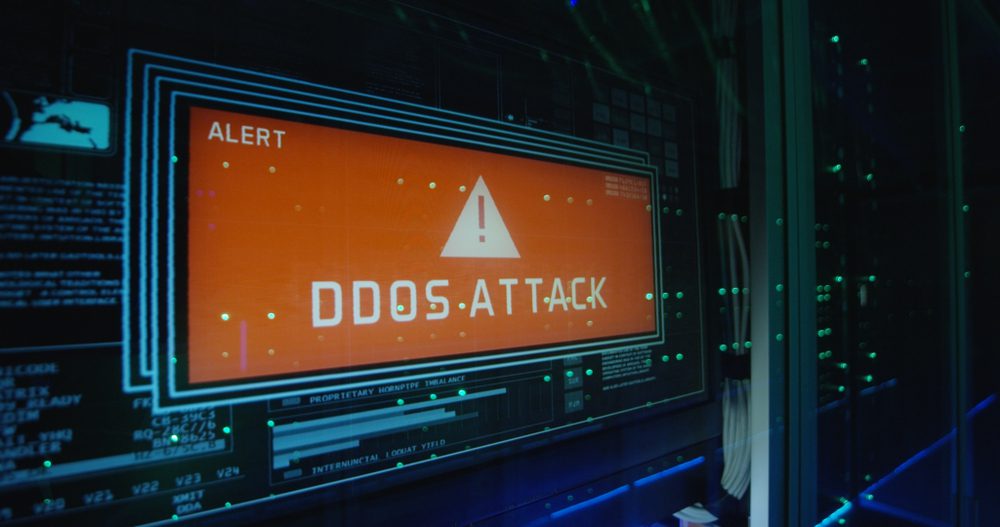
A cyber attack downed the EU Parliament’s website shortly after a vote that declared Russia a state sponsor of terrorism on Wednesday, November 23th. EU Parliament President Roberta Metsola has claimed a “pro-Kremlin” group was behind the attack, Reuters reports.
Some alarm rippled through the EU Parliament as its website went offline. It was up again shortly after 1700 GMT, about two hours after the Strasbourg-based institution had reported the outage.
The website was allegedly hit by a distributed denial of service (DDoS) attack. A DDoS attack causes a website to crash by bombarding it with so many visitors that its servers cannot cope. Such attacks, however, usually do not cause much damage.
The event occurred right after the institution had overwhelmingly (494 in favor, 58 against, and 44 abstentions) voted in favour of recognizing Russia as a “state sponsor of terrorism.”
According to EU Parliament President Roberta Metsola, a pro-Kremlin group has claimed responsibility. While plausible, the claim is yet to be corroborated. She called it a “sophisticated cyber attack” on Twitter, and said their IT experts “are pushing back against it and protecting our systems.”
Metsola immediately made the connection with the Parliament’s earlier vote. “This [happened] after we declared Russia a state sponsor of terrorism,” she wrote, adding as her “response: #SlavaUkraini [glory to Ukraine].”
The @Europarl_EN is under a sophisticated cyberattack. A pro-Kremlin group has claimed responsibility.
— Roberta Metsola (@EP_President) November 23, 2022
Our IT experts are pushing back against it & protecting our systems.
This, after we proclaimed Russia as a State-sponsor of terrorism.
My response: #SlavaUkraini
MEPs motivate their nearly unanimous vote by saying that “Russian forces and their proxies” carry out “deliberate attacks” and commit “atrocities” against Ukrainian civilians.
The MEPs argue Russian “destruction of civilian infrastructure and other serious violations of international and humanitarian law amount to acts of terror and constitute war crimes.” Given this, they deem Russia to be a state sponsor of terrorism and as a state that “uses means of terrorism.”
Additionally, MEPs have asked the Council to include Russian paramilitary organization ‘the Wagner Group,’ the 141st Special Motorized Regiment (a Chechen paramilitary organization also known as the ‘Kadyrovites,’ after Head of the Chechen Republic Ramzan Kadyrov) as well as other Russian-funded armed groups, militias, and proxies, on the EU’s terrorist list.
Since the start of its military campaign in February, the Kremlin has maintained it does not intentionally target civilians, nor encourages the practice.
Still, the vote is largely a symbolic one. The European Parliament, and the EU as a whole, currently cannot officially designate states as sponsors of terrorism. Parliament has therefore called on the EU and its member states to put in place the proper legal framework to consider adding Russia to such a list.
It also wants to see more being done towards isolating Russia internationally, including when it comes to Russia’s membership in international organizations and bodies such as the UN Security Council. Furthermore, diplomatic ties with Russia are to be reduced, EU contacts with official Russian representatives to be kept “to the absolute minimum” and Russian state-affiliated institutions in the EU “spreading propaganda around the world” to be closed and banned.
It further calls on EU member states in the Council to conclude their work on a ninth sanctions package against Moscow.
Ukrainian President Volodymyr Zelensky welcomed the decision and urged for Russia to “be isolated at all levels and held accountable in order to end its long-standing policy of terrorism in Ukraine and across the globe.”
I welcome @Europarl_EN decision to recognize Russia as a state sponsor of terrorism and as a state which uses means of terrorism. Russia must be isolated at all levels and held accountable in order to end its long-standing policy of terrorism in Ukraine and across the globe.
— Володимир Зеленський (@ZelenskyyUa) November 23, 2022
On its Telegram page, Russia’s mission to the EU called the vote’s outcome an “absurdity,” viewing the task set by the European Parliament as simple, i.e. “to whip up confrontation with Russia by all possible means” at the expense of the well-being of people who are faced with the adverse impacts of the anti-Russian sanctions.
